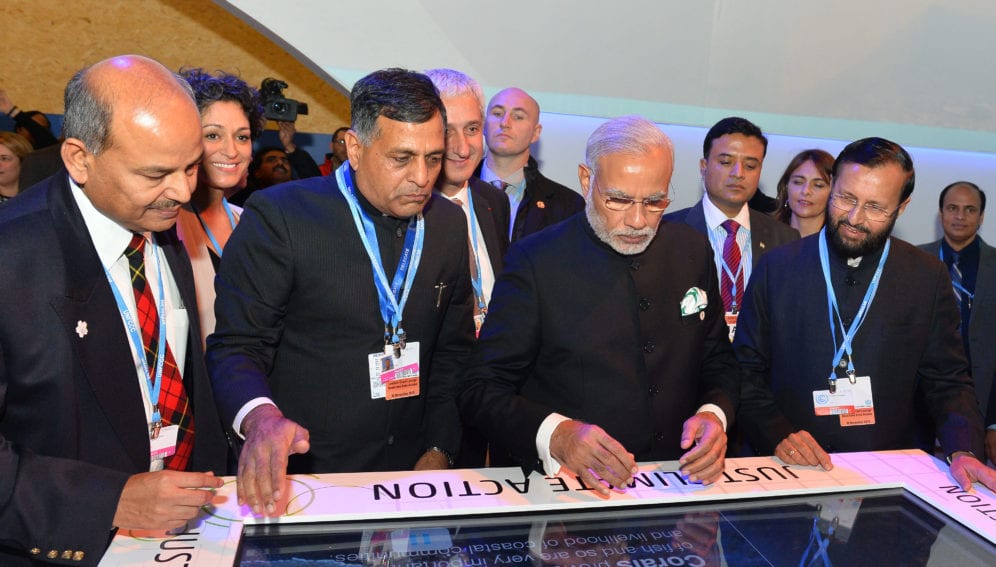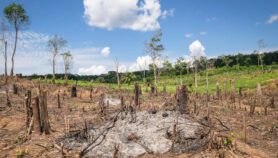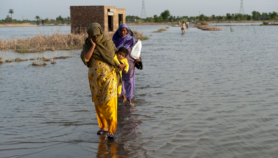By: Athar Parvaiz
Send to a friend
The details you provide on this page will not be used to send unsolicited email, and will not be sold to a 3rd party. See privacy policy.
India will bank on data from new ecological observatories for adaptation to climate change, says Athar Parvaiz.
Of India’s initiatives towards adaptation to climate change and mitigation of impacts, the launch of the Indian Long-Term Ecological Observatories (I-LTEO) at the COP21 UN Climate Change Conference rates high in importance. The choice of Paris as venue for the launch by Indian environment minister Prakash Javadekar is proof of his seriousness.
India is no stranger to long-term ecological monitoring, but the I-LTEO identifies six zones in the vast South Asian peninsular country that are vulnerable to climate change, including the western and eastern Himalayas, the forested central area, the arid northwest and the Nicobar islands. These zones will now see the establishment of facilities that will monitor the long-term effects of climate change and help citizens find ways to adapt to or mitigate them.
“India had been doing long-term ecological monitoring only at one place in the country, a 50 hectare plot at Mudumalai which is being monitored for the past over 30 years by the Indian Institute of Science, Bangalore,’’ Javadekar said at the event. “The I-LTEO programme will enable our scientists to join the international initiatives on the subject and provide credible empirical data on actual impacts on various ecosystems which will guide us in taking necessary adaptation measures.”
Some would say India has been tardy in carrying out the micro-level mapping needed for a large and vulnerable country to face climate change. According to Ashok Lavasa, India’s environment secretary, research generated at the observatories would help the country “understand the impact of climate change better”. Given India’s size, range of agro-climatic conditions and biodiversity, the world is bound to benefit from that research.
Under the I-LTEO programme, long-term field stations will be established in each of the representative regions and will be outfitted with necessary infrastructure and equipment for collecting data. For instance, a basic requirement would be the establishment of automatic weather stations supplemented with data loggers. A national database would be created for generating scientific outputs and critical analyses presented through reports and peer-reviewed publications.Over 17 per cent of the world’s human population, 18 per cent of the livestock population and 7—8 per cent of all recorded species live in this country that is also among the fastest growing economies. This means that India’s priorities are different and call for studies on how changes in climate are affecting natural and closely associated human systems of agriculture and pastoralism.
“Research on climate change is largely dominated by modellers and economists with futuristic projections. It is high time that biologists undertake targeted research with a view to discovering and compiling solid empirical data sets which separate the impact of change from background noise arising from local pollution, habitat fragmentation and climate variability,” Javadekar said. “This new initiative, which is science-based, is very important.”
The basic idea, according to officials at the environment ministry, is to build capacity within India about the impacts, adaptation and mitigation of climate change by training students and young scientists through sustained long-term support for research in these key areas.
Commendable, but Indian scientists attending COP21 hope that the I-LTEO does not meet the fate of similar initiatives in the past that ran out of steam. Said, Shri Prakash, distinguished fellow at The Energy and Resources Institute: "It is a great initiative in a country like India where research is hardly happening on climate change impacts, adaptation and mitigation. But, my only fear is that it takes off and then not sustain," Prakash told SciDev.Net.














